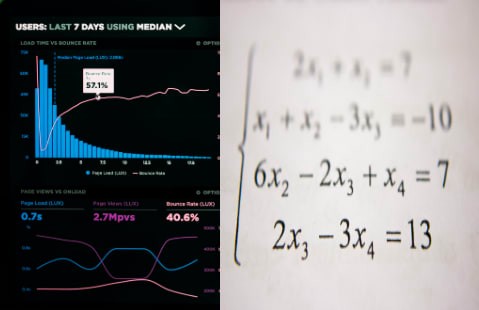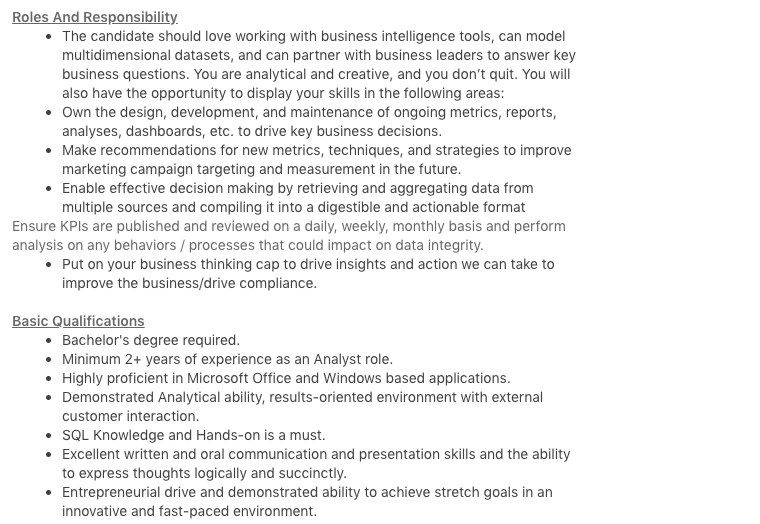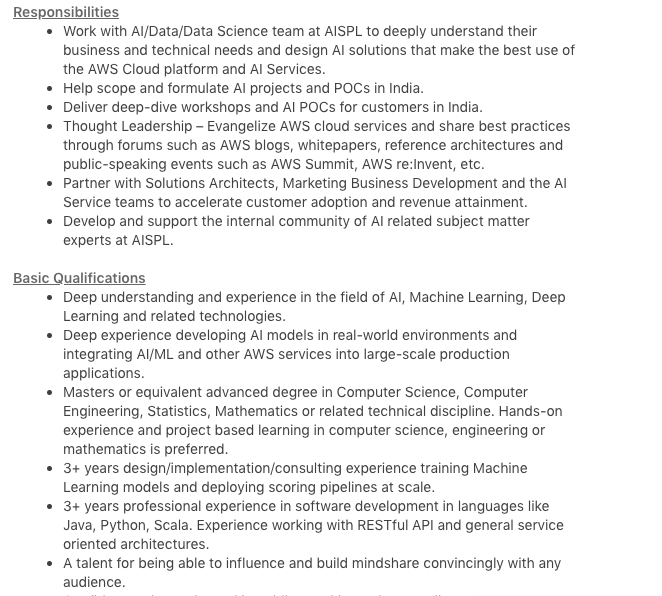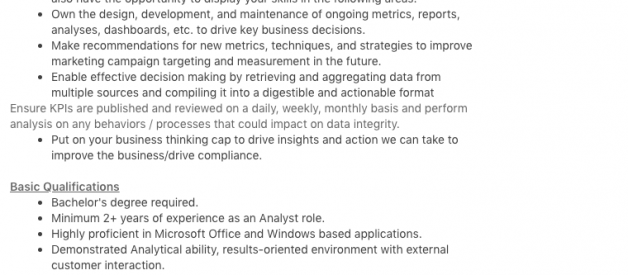
Data Analytics and Data Science are the buzzwords of the year. For folks looking for long-term career potential, big data and data science jobs have long been a safe bet. This trend is likely to continue as AI and Machine Learning become highly integrated into our daily lives and economy. Today, data is the new oil for businesses to gather critical insights and improve business performance to grow in the market. But who will glean insights? Who will process all the collated raw data? Everything is done either by a data analyst or a data scientist. These are the two most popular job roles in this area as companies across the world look to make the most out of data. Data Science and Data Analytics is a mishmash of terms which interweave and overlap with one another but are still quite different.
Yes, professionals(both beginners and transitioners), we have our ear to the ground. Many of you getting started with a career in data analytics or data science are often confused and unsure about which is the right career path for you. Well, the decision would depend on what your career goals are, as well as your skills and competencies. That said, to spare you from any kind of confusion and provide you a crystal clear insight into these two innovative career paths, here we explore Data Analysis and Data Science. This article aims to help you better understand the difference between the two disciplines so that you can make a decision as to which career path would better suit your career aspirations.
Data Science vs Data Analytics ? Understanding the Differences
Data Science vs Data Analytics ? The Fundamental Goal
Data Analytics ? Analyse and Mine Business Data
Data Science ? Discover the right business questions and find answers.
Data analysis involves answering questions generated for better business decision making. It uses existing information to uncover actionable data. Data analytics focuses on specific areas with specific goals. On the other hand, data science focuses on discovering new questions that you might not have realized needed answering to drive innovation. Unlike data analytics which involves checking a hypothesis, data science tries to build connections and shapes the questions to answer them for the future. If data science is a home for all the methods and tools, data analytics is a small room in that house. Data analytics is more specific and concentrated than data science.
Data analytics focuses more on viewing the historical data in context while data science focuses more on machine learning and predictive modeling. Data science is a multi-disciplinary blend that involves algorithm development, data inference, and predictive modeling to solve analytically complex business problems. On the other hand, data analytics involves a few different branches of broader statistics and analysis.
Data Science vs Data Analytics ? The Skills
Data Analytics ? Knowledge of Intermediate Statistics and excellent problem-solving skills along with
- Dexterity in Excel and SQL database to slice and dice data.
- Experience working with BI tools like Power BI for reporting
- Knowledge of Stats tools like Python, R or SAS
To become a data analyst, one need not necessarily hail from an engineering background but having strong skills in statistics, databases, modeling, and predictive analytics comes as an added advantage.
Data Science ? Math, Advanced Statistics, Predictive Modelling, Machine Learning, Programming along with ?
- Proficiency in using big data tools like Hadoop and Spark
- Expertise in SQL and NoSQL databases like Cassandra and MongoDB
- Experience with data visualization tools like QlikView, D3.js, and Tableau.
- Dexterity in programming languages like Python, R, and Scala.
Data Analyst vs Data Scientist ? The Job Role
Data Analyst Job Roles involves ?
- Exploratory data analysis
- Data Cleansing
- Discover new patterns using various statistical tools.
- Develop visualizations and KPI?s
Here?s a sample Data Analyst Job Description ?

Data Analyst Job Posting at Amazon
Data Scientist Job Role involves ?
- Processing, cleansing and verifying the integrity of data.
- Exploratory Data Analysis
- Gleaning business insights using machine learning techniques and algorithms.
- Identifying new trends in data to make predictions for the future.
Here?s a sample Data Scientist Job Description ?

Data Scientist Job Posting at Amazon
Data Science vs Data Analytics ? Which one should I choose?
At Springboard, we have created Data Analytics and Data Science courses with the help of industry professionals to guide aspiring professionals to pursue lucrative careers in the big data world. To more effectively understand the differences between Data Analytics and Data Science course, we suggest individuals consider some of the important dimensions like the tools and technologies that can be mastered in each of these courses. Having a practical hands-on working knowledge and expertise of various analytical and database tools is the secret success mantra to excel in Data science and analytics industry.
Springboard?s Data Analytics course provides extensive training on tools like Excel and SQL to manipulate and analyze large volumes of data. Apart from learning Excel, SQL and Python, the data analytics course also contains modules on how to use Power BI and Tableau for generating dashboard and visualizations to communicate analysis results. Anybody with minimal or no coding background can learn analytics. So, hurray if you are from a non-engineering background looking to enter the big data industry. Data analytics is one of the best career options to consider.
Learn more about the concepts covered in Data Analytics Career Track
Springboard?s Data Science course is entirely taught in Python, the programming language of choice for data science, and an essential tool in a Data Scientist?s toolbox. Python is gaining tremendous popularity for doing data science due to its extensive package repository around statistics, machine learning, and analytics applications.
See what our alumni have to say about the Data Science Course
In terms of a career fit, data analytics course is for professionals with 2 to5 years of experience who are looking at building data modeling and data warehouse expertise and further using it in collaboration with Excel, SQL, Python, Power BI and Tableau for performing standard data analysis tasks and building dashboards. On the other hand, data science course is beneficial for professionals with 1 to 10 years of experience who want to learn extensive Python programming for successfully executing data science projects. Usually, the data science course is a perfect fit for professionals working as BI engineers, business analysts, IT application engineers, Architects, and Data analysts who want to enhance their analytic skills for launching a rewarding career in the data science industry. Data analytics course is ideal for professionals working as database administrators, data warehousing professionals, QA engineers, and associates in Sales, Marketing, Finance, Ops, SCM who want to become skilled and competent in manipulating and processing data using Excel /SQL and also work with Python, Tableau and Power BI to create dashboards, reports, and visualizations.
Although differences exist, both data analyst and data scientist are among the most in-demand job roles in the industry as organizations embrace these professionals to lead the path towards technological change and stay competitive. If you love challenges, are creative, and are hungry for doing analysis and programming, it?s time you think about these career options. If you already feel the excitement and zeal to jump-start your career as a data scientist or a data analyst- Welcome aboard to Springboard! It?s simply a matter of making the right choice that best fits your skills and existing job roles? Data Science or Data Analytics.
Still confused and have more questions or need to talk with our counsellors? Connect with us at [email protected] or call us at +917483024694.

